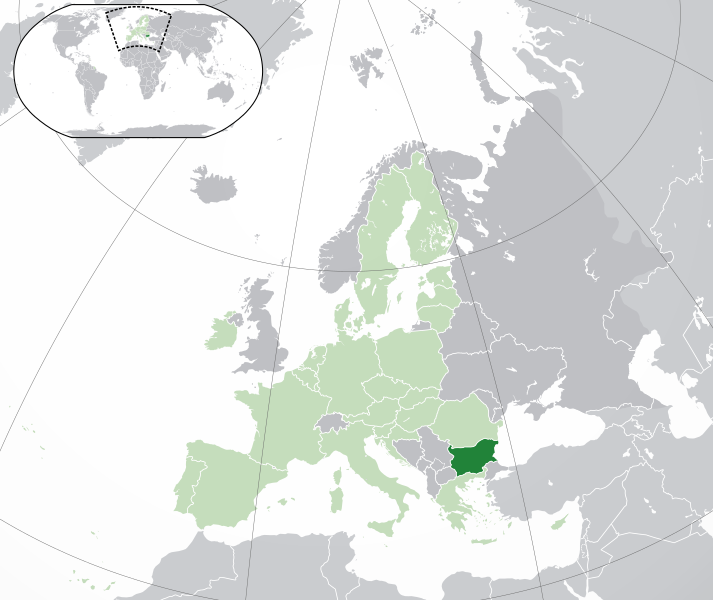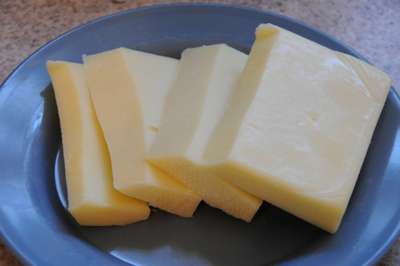This week I had an interesting encounter with that strangest of birds, the Plumed and Crested Foodie. I guess I ruffled some feathers when I said that I preferred not to eat bugs or entrails; evidently it's not possible to have a true "cultural experience" unless you're willing to eat things that most Americans find gross. This rather odd exchange left me wondering if I was depriving my readers of some sort of surreal culinary journey into the Kalahari when, a few weeks ago, I chose to cook Botswana chicken pie instead of mopane worms.
I actually didn't need to think about this for very long, though, because it's pretty obvious to me that you can't really have a "cultural experience" by cooking a single meal in an American kitchen (that's like saying you've visited Chicago because you once had a two hour layover at the airport). To even come close to such a thing you would need to cook at least several weeks worth of meals (not just dinner), and you'd have to use traditional equipment (whether it's a Tandoori oven or a fire pit), eat with traditional utensils (or your hands), sit down in the traditional way (whether it's at a table or on the floor), and, let's face it, actually be in that country. So a "cultural experience" this is not. It's just a very small taste of what the world has to offer. And as for insects and innards, well, I'm still not going there. Ew.
Anyway, this week we're in Bulgaria, which was kind of a relief to my poor husband who I think is a little fed up with having "cultural experiences" (haha) that include cornmeal mush or shrimp paste.
Bulgaria is an Eastern European country bordered by Romania, Serbia, Macedonia, Greece and Turkey. It was a communist nation from 1946 to 1990, when it became a democracy with a market economy. If you're interested in very early human history, Bulgaria has some gems to offer including the Kozarnika cave, which contains some of the earliest evidence of human symbolic behavior (things like deliberate markings on objects made of bone or rock), Bronze Age era drawings in the Magura Cave, two of the oldest surviving buildings in the world (dating back to 6000 BC) and the Varna Necropolis, the burial site where archeologists uncovered the oldest known golden treasure.

Bulgarian cuisine is pretty diverse and it's not hard to find recipes. The food is pretty similar to food found in other parts of the Balkans and thankfully, there aren't any recipes containing bugs (at least not that I uncovered, not that I was looking or anything). I did fail in one area this week, though; I discovered after I'd already made my meal that most Bulgarian dinners include some kind of salad, so if you want to go for true authenticity you might want to add a Shopska or Bulgarian potato salad to this menu.
Here's what I did make:
Kashkaval Pane
I found this recipe at about.com in their
Eastern European Foods section. Disclaimer: I only made this because I found some kashkaval on igourmet.com, and I never really need a very good excuse to eat cheese.
- 1 pound kashkaval cheese (provolone or haloumi could also be used)
- All-purpose flour
- 2 to 3 large eggs, beaten
- 2 to 3 cups fresh breadcrumbs, panko crumbs, or matzo meal
Monastery Gyuvetch
(This recipe comes from
Find Bulgarian Food)
- 2 lbs beef, cut into bite-sized pieces
- 4 tomatoes, chopped
- 1/2 lbs mushrooms
- 1 cup rice
- 1 onion, chopped
- 15 olives, whole
- a bunch of parsley
- 2 tbsp vegetable oil
- 1 tbsp butter
- 1 tbsp sugar
- 2 1/2 cups beef stock
- black pepper, paprika and salt
Baked Cabbage
(This recipe comes from a family blog called
Roesing.net. The authors are a Bulgarian and her American husband)
- 1 head cabbage, chopped
- 1 tbsp paprika
- 1 tsp freshly ground black pepper
- 1/3 cup vegetable oil
- 1/3 cup vinegar
- 1/2 cup water
- Salt to taste
- 3 tomatoes, chopped
- 1-2 peppers, chopped (the recipe was not clear on the type of pepper, so I used red bells)
And for dessert:
Mekitsi
- 1/2 tsp active dry yeast
- 1/4 cup warm water
- 1 small egg
- 1/2 cup yogurt
- 1 2/3 cup flour
- 1/8 teaspoon salt
- Oil for frying
The baked cabbage has the longest cooking time, so I started there. Unfortunately I'd just returned from a day at the pool with the eldest three of my four children and I was a) exhausted and b) almost completely without any time to be doing one of these elaborate meals. So I traveled off the beaten recipe and I started out by sauteing my cabbage and bell peppers in oil so they wouldn't need as much oven time.
If you do have time (1 to 2 hours), just mix the cabbage with the peppers and tomatoes, add the spices, oil, vinegar and water and transfer to a baking dish.
Bake for 1 to 2 hours (after the first hour, keep checking to make sure that the top of the dish doesn't burn) or until the cabbage is soft. Easy-peasy.
Now on to the gyuvetch, which is also almost embarrassingly easy:
First saute the meat in a little bit of oil until it starts to brown. Then add the onions, beef stock and paprika and simmer for 5 minutes.
Add the rice and mushrooms. Keep simmering for 15 minutes or until most of the liquid is absorbed. (At about this time you can start preheating your oven to 400 degrees.)
Now add the tomatoes, salt, butter, sugar and olives. Simmer for another 5 minutes. Then transfer the mixture into a baking dish and bake for 30 minutes. Sprinkle with parsley and pepper (oops, I forgot the parsley).
About 10 minutes before the gyuvetch comes out of the oven, start on the kashkaval. This is also easy: Just put some oil on the stove (about two inches worth should be fine) and heat until bubbles rise around the non-stirring end of a wooden spoon. Meanwhile, slice the cheese up into half-inch thick pieces.
 |
| Kashkaval is a Bulgarian cheese made from sheep's milk. |
Coat all sides of each slice with flour, then dip in egg, then in breadcrumbs. Submerge each slice in hot oil and fry until golden brown. Serve immediately.
Finally the dessert:
The dough has to rise for about an hour, so you might want to start right about the time the gyuvetch goes in the oven.
First put the yeast in the water and let sit for five minutes or so, or until frothy. Then mix with the egg and yogurt. Keep stirring until well-blended. Add the flour and salt and mix until you get a soft dough. Let stand one hour.
Heat some oil in a pot (you'll need two inches or so). Roll the dough out and cut into circles. Drop into the hot oil and fry, turning once, until golden and puffy.
Dust with powdered sugar and serve.
This meal actually went over pretty well with everyone in my family (though my kids chose leftover birthday cake over mekitsi). Everyone ate the cheese, even Hailey (who hates cheese). I am still in rather a daze over this because you usually can't get that girl to go within 10 feet of a piece of cheese unless it's on pizza.
Dylan moaned for about 10 minutes over whether or not he wanted to try the main dish, but when he did he finished it. None of my kids really liked the cabbage, though, except for Henry who probably would actually eat bugs and entrails.
Martin ate his whole meal and then all but gave me permission to buy plane tickets to Bulgaria, which after researching this entry I would actually be happy to do since Bulgaria sounds like a fascinating place. The gyuvetch kind of reminded me of a beefy, non-seafoody twist on paella, and the vinegar in the cabbage made it taste really unique, though I personally preferred a small dose of it since it was a little overwhelming. The mekitsi was unsweetened (other than the powdered sugar) so it was a very un-American dessert, though we did enjoy it. It puffed up really nicely when fried and was kind of like a doughnut in texture. Martin actually went back for another one and then covered his seconds with chocolate syrup.
Bulgaria was also good because it was simple, and on this first full week of summer vacation, I really needed some simple.
For printable versions of this week's recipes:
Next week: Burgundy and Bordeaux, France






















0 comments:
Post a Comment